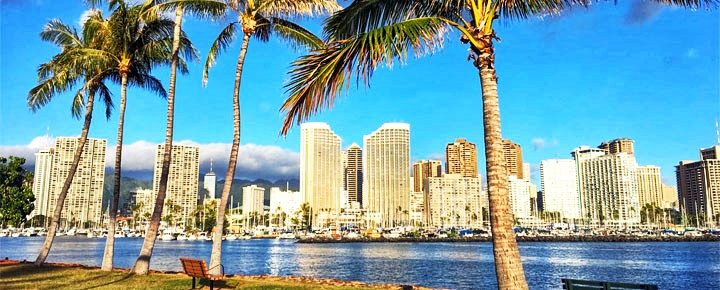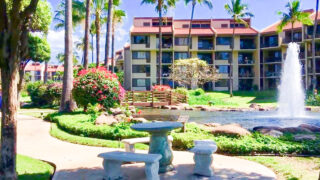Maui’s initiative to cut vacation rentals by half places it among global destinations rethinking tourism’s impact. The move reflects a growing trend toward sustainable tourism practices that prioritize long-term community needs.
Get Breaking Hawaii Travel News







My family bought into a PUD in 1969 because the ‘locals’ couldn’t afford the prices. Our family used it until the fire of ‘23. From 2008 I donated it to Red Cross, Muscular Dystropy, March of Dimes, the Cancer Society, Guide Dogs and American Heart Association the last year I donated 270 days out of 365. Maui County decided I was a hotel about 2012. I was a widow and paid all expenses. My taxes tripled. After 7 years I stopped donating. So if any of your families needed help from one of the above charities, know they lost significant monies from the auctions they sold a vacation in Maui for. I will not rebuild!!
Live in Victoria, British Columbia, Provincial Government has cracked down on STR this year due to our housing crisis. This apparently is a global issue for most tourism driven economies.
Very good point Mike that this is not addressing the problem that they’ve claimed is the problem, illegal STRs that they somehow are aware exist in neighborhoods, thousands according to the governor – but then the County can’t find and shut down and return housing for residential purposes??
It is definitely a value extraction scheme – force a reduction in the value and the income for landlords to make them sell at a greatly reduced price.
Who are the intended beneficiaries of this scheme? So many options… could be the locals but probably not. Locals were likely not at the real closed door planning sessions.
There were 1000s of illegal STRs shut down. They recently made it where they can be reported anonymously. It was hard for some neighbors to report this with their name attached. However I don’t believe they’ve let everyone know they report these illegals anonymously. Wish there was a way to spread the word. Neighborhoods are where these families need to live.
If Maui was actually attempting to stop rentals in residential areas, it would make sense, but that isn’t what is happening. Maui is trying to shut down purpose built resort communities that were never intended to be, and will never be, residential. This law will lower the price of condos in these areas, but not to a point to justify long-term rentals.
Please don’t call this a law, because it isn’t. It is simply a proposal that hasn’t even been analyzed and voted on yet. That’s part of the problem with the downturn in tourism. Would-be visitors are being led to believe, either intentionally or unintentionally, that there is some sort of ban on STRs, in places where there is no such ban.
Green and Bissen have gone too far. If they can’t be reigned in by the courts, especially shortsighted Bissen and all his gloating constituents, should and hopefully will be voted out of office.
Been to Hawaii over 30 times, but not anymore. Love Hawaii, but I’ve had enough of the the taxes and anti tourist sentiment. My experience over the years is that tourists take better care of the land, different beaches and attractions then native Hawaiians.
I agree with your comment about native Hawaiians. But it needs to be clarified who the native Hawaiians really are and how many of them live on the islands? According to the various analyses, the real native Hawaiians, defined as the descendants of the original people of Hawaii, comprise a minority of the population, barely around 6%. Vast majority today lives on Mainland.
Majority of those who identify as “native Hawaiians” are of Asian ancestry without too many drops of real Hawaiian blood. Why this might matter? Because even if someone was born in Hawaii, but is of different ancestry, their vested interest in the preservation of the land, resources and culture may be a bit different. That, at least in part, may explain why you see some of the visitors taking better care of Hawaii resources than some of the locals who like to call themselves “native Hawaiians”.
Totally agree with you, although 1/2 of my family is of Hawaiian descent. My daughter and I started an anti litter campaign in 1986. The improvement in almost 40 years shows today.
Wondering how this new legislation will be effecting timeshare owners. Will they claim emminent domain and force the sale of the timeshares? I don’t want to sell!! Love my timeshare and the wonderful memories made there.
Timeshares are owned by big corporations, such as Marriott. You don’t actually own the property. They sold you the right to use it for a week or two every year. Just like no one can take away the hotel room you paid for, no one will take your timeshare away.
Keoki, I do not have points tho. I have deeded property on Maui. The timeshare world went to points but mine is not. They would have to buy me out.
If timeshare is deeded ownership weeks and not a Club or just points, it is ownership. It is an undivided interest. If owned by a hotel corp you are safe. If deeded timeshare you are safe.
You’ll still be able to stay there. Hotels and timeshare will basically be the only employment we will be able to count on until this gets overturned.
A few questions about the delayed moratorium in Wailea, for those who know more than I do: It seems that most who have lost homes in Lahaina don’t want to live in Wailea. I believe over 300 offered their condos in our area through the FEMA program without takers. This does not get publicized. Also, a typical 2 bedroom cost $2M plus $2000/mo in HOA fees. How would this help in terms of affordable housing? Finally, many condos in Wailea were built for the purpose of renting as STRs. The Palms and Wailea Palms were twin developments in 1992, one for STRs and one for long term rentals. How does that make The Palms “work force housing?”
Many of those questions apply in West Maui as well. The Eldorado was purpose-built as a resort. Many others as well. Plus Kapalua Golf Villas are on the list, but to be economically viable as a long term rental, they would have to charge $15,000 or more per month. They will sell to people willing to let them sit empty most of the year long before they get cheap enough to make a $2500/month rental viable.
I agree what is so difficult about grandfathering in, and putting caps on certain areas? It’s not all or nothing.
We have been coming to Hawaii for 3 months each year for the last 20 years.
We spend approximately $80,000 each year. Don’t bother anyone, have made lots of local friends, enjoy the warm weather in our retirement
Hate to loose it. Good luck to all the great markets, restaurants, golf courses, at least the whales won’t be bothered with whale watching boats
Mahalo
Not sure about the previous calculation, I think way low. Our condo in 2023 had $70,000gross receipts. Fixed and variable expenses $60,000 including 17% local taxes 22% property management, $9,500 HOA $8,500 property tax, $2500 utilities, $1,000 insurance and maintenance. Guess the net was $10,000. Ok our guests put $60,000 into the Maui economy, for lodging only. 7,000 units at 80% occupancy is 5600 units rented using my average is $336,000,000 (336 million). About 26 million in airfare. $330 million for spending average $200 a day, 81 million in car rentals. This is if you take 7,000 STR’s out of the pool. Bite that apple. Oh and for our help we netted $10,000!
Hawaii’s bread and butter is tourism. While more major cities around the world have other forms of business to survive. The level of incompentency in this goverment is ridiculous. Tourism is all this State has to survive. That’s it. Exporting pineapples is not going to cut it.
Excellent article. The only way I could afford to come back for my high school reunion with 10 in our ohana was to rent a house far away from my school and Honolulu. Hotel accommodations were financially out of the question. It will be several years before I want to take family back there until this rental issue is resolved. Mahalo.
“Nuanced” is a great take. It’ll take a few lawsuits to get there. In the meantime we just returned from a trip overseas. A year ago we Never would have thought to go anywhere but Maui. We had so much fun we are already planning next year’s return. We didn’t miss Maui like we thought we would! Hawaii will have to wait. We are late bloomers as Japanese tourists discovered this a while back. Green must be thrilled.